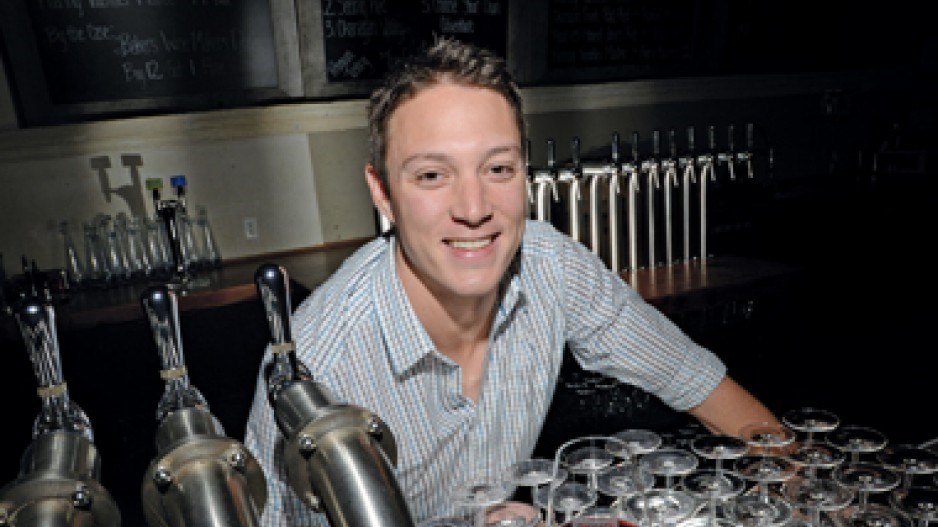Restaurateurs and bar owners are capitalizing on diners' increasingly sophisticated palates for wine and latent demand for higher-quality wines by the glass by investing in technology that limits wasting unordered wine that remains in the bottle.
Vancouver restaurants tend to use one of two systems. One, made by Enomatic, allows the restaurant owner to extend the life of an opened bottle of wine for up to 10 days by pumping an inert gas into an individual bottle of wine when a glass is poured. The other system can be installed by BBS Systems and will attach a wine tap via plastic tubes to a 19.5-litre stainless steel keg.
British Columbians annually drink about 14.5 litres of wine per capita – more than any other Canadians outside Quebec. They also have sophisticated wine palates cultivated by events such as the Vancouver International Wine Festival, which is the largest event of its kind in North America and will be held February 25 to March 3.
Increasing demand for high-end wines by the glass prompted Vancouver-based Joey Restaurant Group to spend $40,000 on five Enomatic machines in 2008 when it built its Bentall Centre restaurant, said Geoff Boyd, who is vice-president of bar and concept development at the 25-restaurant chain. Each Enomatic machine has eight taps.
"We have 40 different wines by the glass at the Bentall Joey's but this is not something that we do at all of our restaurants," said Boyd, who believes that the vast selection of wines by the glass has lured customers to his chain's Bentall Centre restaurant.
"[The Bentall location] is our laboratory where we test out lots of different wines and offer the wines by the glass at different price points."
Other restaurateurs are opting to have companies such as BBS Systems install machinery that enables them to pour wines by the glass from a keg without allowing any oxygen to touch unpoured wine.
This strategy enables the restaurant owners both to save money by wasting less wine but also to reduce costs by buying in bulk.
Vancouver Urban Winery (VUW) CEO and founder Mike MacQuisten has grown his 18-month-old business to 25 employees by being the intermediary between Okanagan wineries such as Blasted Church, Nichol and Desert Hills and Vancouver restaurants such as Forage or Fan Club.
Wineries send wine in oak barrels to MacQuisten's Dunlevy Avenue winery so his staff can put the wine in sterilized stainless steel kegs.
Restaurant owners then come to MacQuisten's facility and sample wines from his 36 taps to determine what wines they want to serve in their restaurants.
VUW receives and kegs wine from 31 wineries, mostly from B.C., although MacQuisten expects that number to jump to about 40 by the end of February. He has 50 restaurant clients.
"There's about a 10% to 15% saving to buy the wine by the keg as opposed to buying it in bottles," he said.
Forage restaurant manager Margot Baloro told BIV that her restaurant's transition to offering wine by the glass using VUW's kegs from simply opening wine bottles has cut the amount of wasted wine in half.
"We also don't have to recycle bottles because we don't use them," she said. "The sustainability side of this I feel strongly about."
Forage's owners invested in wine-by-the-glass technology last year, when they renovated and converted their restaurant to Forage from O'Douls, which operated at the Listel Hotel on Robson Street for decades.
Fan Club owner Waide Luciak did the same thing when he invested "millions" of dollars to convert the former 6,500-square-foot Circa space on Granville Street into Fan Club.
He now offers four wines by the glass that staff can pour out of a total of 10 taps thanks to splitting some of the wine pipes so the same keg can be pumped by multiple taps.
"We still waste some wine because we clean out the lines every month and they're long," he said. "There's a lot of wine in that plastic tubing." •




